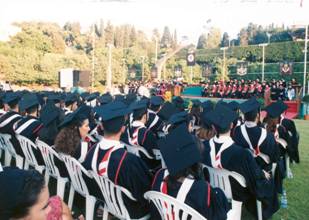 BEIRUT, 17 April (IRIN) – "I left school when I was only 11," said 38 year-old Ihsan. "My mother became ill, and
BEIRUT, 17 April (IRIN) – "I left school when I was only 11," said 38 year-old Ihsan. "My mother became ill, and
The gap between male and female [in terms of literacy] has grown smaller over the years," said Amal Charara, head of the ministry’s National Committee for Literacy and Adult Education. "There are currently some 25 percent more women who are illiterate. In the age group of 45 years and above, however, about 60 percent more women are illiterate than men."
Illiteracy rates vary considerably from one area of the country to the next. Nabatieh in the south and the Bekaa Valley in the east, for example, have the highest levels, both at about 15 percent. The province of Mount Lebanon, meanwhile, in the heart of Lebanon, boasts the lowest rate, at about 8 percent.
"There’s a direct link between illiteracy and poverty," Charara pointed out. "It’s usually the result of people having to leave school at an early age to support the family. Lebanon’s civil war and the war with Israel also had negative effects."
While Beirut has an average illiteracy rate of some 10 percent, levels also vary widely within different areas of the capital. In Palestinian refugee camps and in poorer parts of the suburbs, for example, the rate can often be twice as high.
On both a global and regional scale, Lebanon scores relatively high in terms of literacy. According to the 2004 Global Monitoring Report issued by Unesco, there were some 862 million illiterate peoples worldwide in 2000, representing a global illiteracy rate of 20 percent for adults (aged 15 years and above). Some 61 of these, the report noted, live in the world’s four most densely populated countries, namely, India, China, Pakistan and Bangladesh.
Fighting the trend
In the Arab world, home to some 67 million illiterate people out of a total population of 280 million, only Lebanon, Jordan, the United Arab Emirates and Kuwait have achieved literacy rates close to 90 percent, according to Unesco. Last year, the agency introduced an initiative aimed at halving illiteracy rates worldwide by establishing literacy programmes at the centre of all formal and informal education systems.
Aided by a number of international agencies, Lebanon’s National Committee for Literacy and Adult Education was established in 1995 as an integral part of the social affairs ministry. Based on the concept "Education for all", the committee offers training and literacy workshops to all illiterate people aged 10 and above. The committee also works on illiteracy prevention by lobbying to raise the minimum age of compulsory free education from 10 to 15.
"We have some 40 instructors working in 60 centres around the country that offer classes to some 2,500 people annually," said Charara. "There are also several non-governmental organisations offering language training in the Palestinian camps and orphanages, among other places."
Those involved say some 70 percent of people currently taking literacy courses are women. "The reason there are more women than men is simply because there are more illiterate women than men," said Charara. "But it’s also because men have to work to support their families and have less time to follow classes."

admin
 BEIRUT, 17 April (IRIN) – "I left school when I was only 11," said 38 year-old Ihsan. "My mother became ill, and
BEIRUT, 17 April (IRIN) – "I left school when I was only 11," said 38 year-old Ihsan. "My mother became ill, and


